Invited Speakers
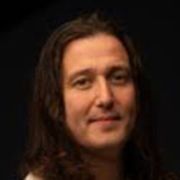
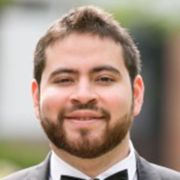
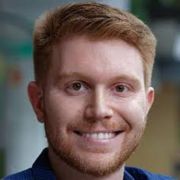
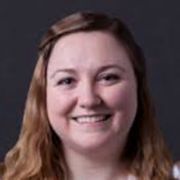
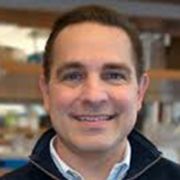
Michael Brehm
United States
Dr. Michael Brehm, Ph.D., Associate Professor, Diabetes Center of Excellence, Program in Molecular Medicine, University of Chan Massachusetts Medical School. Dr. Brehm has over 30 years of experience in biomedical research and his laboratory is focused on the study of autoimmunity and immunological responses to infectious agents and to allograft transplants. He received his Ph.D. in 1999 from the Department of Microbiology and Immunology at the Pennsylvania State University College of Medicine. During Dr. Brehm’s post-doctoral training at the University of Massachusetts Chan Medical School (UMCMS), he investigated how sequential viral infections impact the ability of a host to generate protective immunity and how viral infections influence transplantation tolerance that is induced by co-stimulation blockade. In 2008, he joined the Diabetes Division at UMCMS to develop cutting edge mouse models to study human biology. Dr. Brehm is currently an Associate Professor in the Program in Molecular Medicine at the UMCMS, a member of the Diabetes Center of Excellence and the Harvey A. Shultz Chair in Diabetes. Dr. Brehm’s research program is focused on understanding how human effector T cells are regulated in the context of auto-immune disease, allo-immunity, and tumor immunity. His laboratory is developing “humanized” mice to more effectively study human T cell biology, and he is the Co-Director of the UMCMS Humanized Mouse Core. Dr. Brehm has published over 140 manuscripts and reviews and is supported by funding from Breakthrough T1D and NIH.

Joana Collares Pereira Almaca
United States
Bio is coming soon...
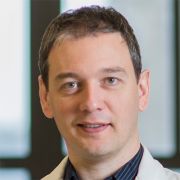
Remi Creusot
United States
Dr. Remi Creusot is an Associate Professor of Medical Sciences in the Department of Medicine and Principal Investigator at the Columbia Center for Translational Immunology and the Naomi Berrie Diabetes Center. Dr. Creusot received his PhD in Immunology from University College London. He subsequently trained at Stanford University, in the Department of Medicine, Division of Immunology and Rheumatology. Dr. Creusot’s research is primarily focused on antigen-specific tolerance in Type 1 diabetes and immunotherapy. His group investigates (1) the role and therapeutic potential of various cell types that can serve as antigen-presenting cells, (2) T cell recognition of beta-cell antigens in human systems, and (3) novel therapeutic strategies aimed at restoring antigen-specific tolerance and blocking autoimmunity.
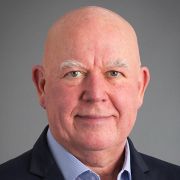
Jacques Galipeau
United States
Jacques Galipeau, MD is the Don and Marilyn Anderson Tenured Professor of Oncology within the Department of Medicine and UW Carbone Comprehensive Cancer Center at the University of Wisconsin in Madison and the inaugural Associate Dean for Therapeutics Development at the UW School of Medicine and Public Health. Dr. Galipeau is an academic health center biopharmaceutical leader with broad experience leading groups responsible for discovery research, GMP compliant cell manufacture, clinical trial design, FDA regulatory approval of clinical trials within academia and execution spanning pre-clinical to first-in-human studies across multiple therapeutic areas. Specific focus on team building within university and healthcare enterprises to enable bridging to clinical development and strategic decision-making to optimize speed and impact of programs emerging from basic university research discoveries to cost effective and impactful health care living therapeutics deployment permissive for marketing approval. He is the founding director of the University of Wisconsin Program for Advanced Cell Therapy (PACT). The mission of this program is to develop personalized cell therapies for immune and malignant disorders and to promote and deploy first-in-human clinical trials of UW-Madison cell therapy innovations to improve outcomes for children and adults. He is a practicing hematologist and internationally recognized expert in discovery science and translational development of mesenchymal stromal cell therapies. Innovator in the field of engineered synthetic cytokines as novel pharmaceutical means of treating immune disorders such as colitis, multiple sclerosis, diabetes and cancer. Dr Galipeau is immediate past President (2022-2024) of the International Society of Cell Therapy.

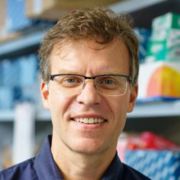
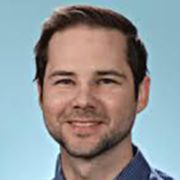
Nathaniel Hogrebe
United States
Bio is coming soon...

Christian Honoré
Denmark
Christian Honoré has a master degree in biochemistry from the University of Copenhagen and obtained a PhD degree the lab of Professor Peter Garred the University Hospital of Copenhagen, University of Copenhagen, studying pattern recognition molecules of the innate immune system. He then moved to Boston for a post doc in Professor Doug Melton’s laboratory at the Harvard Stem Cell Institute. Here he worked on induced pluripotent stem cells and how to differentiate these towards the pancreatic lineage. After two years in Boston he returned to Denmark for a post doc position at Novo Nordisk A/S as part of the innovative medicine initiative academia-industry partnership StemBANCC. The main objective of StemBANCC was to establish a well-characterized bank of iPSC lines derived from patients with disorders ranging from Parkinson’s, Alzheimer and various forms of diabetes. Within StemBANCC, Christian worked closely together with academic and industry partners to characterize the differentiation of iPSC towards the pancreatic lineage and to establish disease models of various forms of diabetes using patient specific iPSC lines. Christian subsequently joined the Cell Therapy R&D unit of Novo Nordisk A/S and has served both as a project leader and scientist on various projects, with the main aim of advancing cellular medicines for serious chronic diseases towards clinical development.
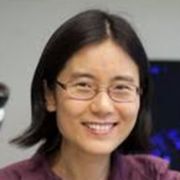
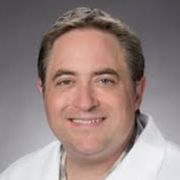
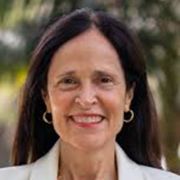



Maki Nakayama
United States
Maki Nakayama, MD, PhD
Professor of Pediatrics
The Nakayama laboratory focuses on unraveling the mechanisms of anti-islet autoimmunity that trigger type 1 diabetes (T1D). Our research centers on the tri-molecular complex comprising antigen, major histocompatibility complex (MHC), and T cell receptor (TCR). Currently, major projects in the lab include (1) identifying T cell autoantigens in human T1D, (2) characterizing the phenotypes and functions of proinsulin and other islet antigen-specific T cells in T1D development, (3) developing TCR biomarkers reflecting disease activity, and (4) developing methods to determine T cell antigen specificity.
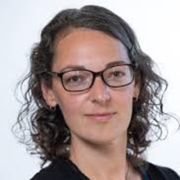

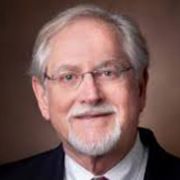
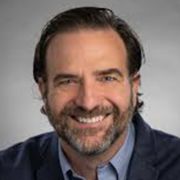
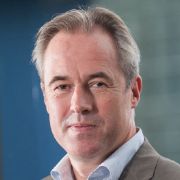
Bart Roep
Netherlands
Bart Roep is Professor of Medicine & Professor of Diabetology, Immunopathology and Intervention at the Department of Internal Medicine, Leiden University Medical Center, Leiden, The Netherlands, where he heads the Section Immunomodulation & Regenerative Medicine. He studied Medicine and Life Sciences at the University of Amsterdam and obtained his PhD in Medicine at Leiden University.
Professor Roep pioneered studies on the role of T-cells in the pathogenesis of T1D and discovered some of their targets in β-cells, provided seminal proof of their role in human β-cell destruction and defined immune correlates of disease progression and therapeutic intervention. He contributed to a suite of intervention strategies in T1D, designing, executing, and monitoring novel immune intervention strategies in clinical T1D including pioneering trials on tissue-specific tolerance induction, regenerative medicine, gene and stem cell therapy, faecal microbiome transplantation and β-cell replacement therapies (pancreatic donor islets and embryonic stem cell derived β-cell progenitors). His inverse vaccination strategy applying intradermal injection of tolerogenic dendritic cells loaded with tissue antigen into recipients with long-standing T1D established durable operational immune tolerance to the β-cell autoantigen vaccine that was accompanied by improved glycaemic control. A profound twist in prevalent belief of the immunopathogenesis involved his discovery of the role of β-cells in their own demise: Professor Roep pioneered the discovery of β-cell neoantigens derived from post-translational modifications and ribosomal infidelity, pointing to a key role of distressed islet tissue in provoking autoimmunity, and was the first to definitively demonstrate T-cells reactive to islet neoantigen in human insulitis and their pathogenicity. At the City of Hope National Medical Center and Beckman Research Institute in Los Angeles, California, where he founded and chaired the Department of Diabetes Immunology until 2022, he investigated the interphase between T1D and cancer, educating on recognition of disease endotypes, developing precision medicine, advancing immunotherapy, identifying neoantigens, and defining new endpoints of therapeutic efficacy. His experience in β-cell replacement and stem cell therapy spans over 30 years. He is accounted as key opinion leader in this field, discovering recurrent islet autoimmunity as major cause for failing islet transplantation into T1D recipients, and immunotherapy preventing graft rejection is insufficient to counter islet autoimmunity. His current focus is on regenerative medicine in T1D from an immunological perspective. Professor Roep published over 400 articles (H-index 98), largely on T1D, and was awarded 75 grants, as well as 26 prestigious awards and prizes including a Royal Academy of Arts & Sciences Fellowship, a VICI Award and the Minkowski Prize.

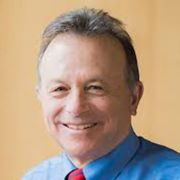
Peter Stock
United States
Bio is coming soon...

Joseph Sushil Rao
United States
Dr. Rao is the Surgical Director for Organ Preservation, Exogenic Organ Development & Transplant Immunology in the Division of Solid Organ Transplantation & Schulze Diabetes Institute, Department of Surgery at the University of Minnesota. Dr. Rao's research involves developing sub-zero preservation techniques for organ and cell clusters in solid organ transplantation. By extending preservation time, Dr. Rao uses novel donor cell based therapeutics for tolerance induction in islet, kidney and pancreas transplant recipients to achieve long term graft survival with no immunosuppressive medications. In finding alternatives for human allografts, Dr. Rao's interests lie in characterizing and altering the immune landscape of porcine donors through genetic engineering and blastocyst complementation for xenotransplantation and exogenic-interspecies chimeric liver transplantation respectively. Dr. Rao has also developed fluid dynamics based mathematical simulation models to predict small for size syndrome and prevent early allograft dysfunction/ hepatic insufficiency after living donor liver transplantation.


